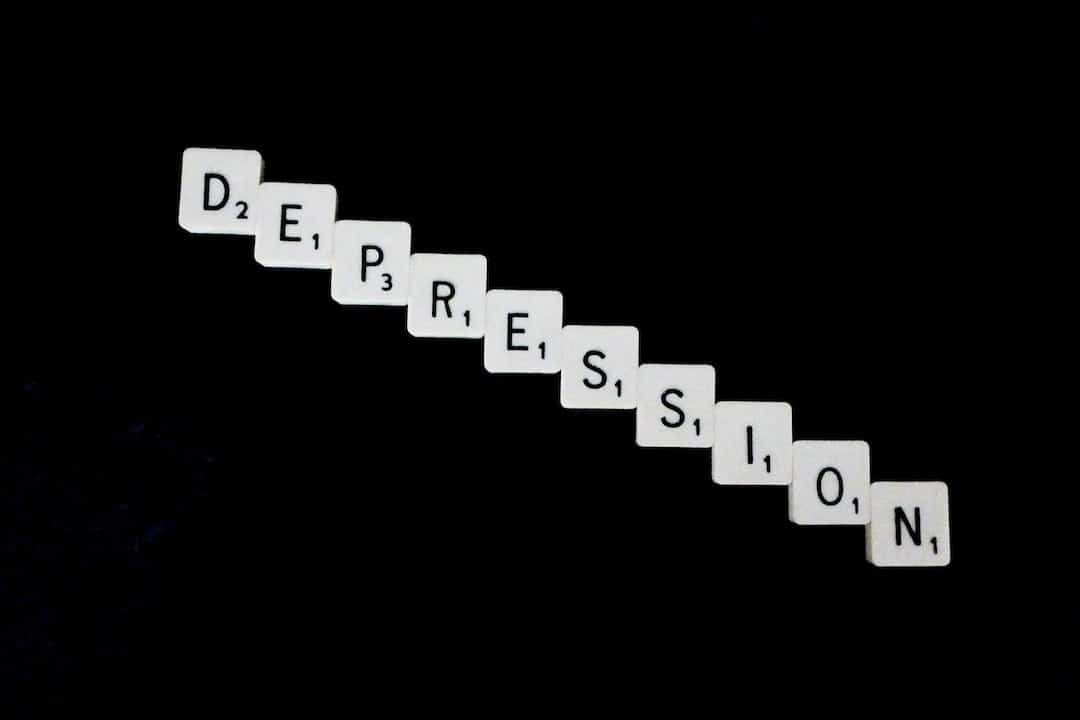Depression and Women: Understanding the Gender Gap
Depression and depressive symptoms are some of the most common mental health issues women experience worldwide. According to the National Institute of Mental Health (NIMH), in 2021, an “estimated 21.0 million adults in the United States had at least one major depressive episode.” Individuals diagnosed with depressive disorders have a higher risk of experiencing substance use disorder (SUD) and other mental health disorders. In addition, depression also affects an individual’s overall physical health. Early intervention and treatment is the best way to reduce the adverse effects of depression. Emerge Recovery TX uses evidence-based methods, including psychotherapy, peer support, and skill development, to help women heal and manage depressive symptoms.
Setting the Context: Women Are Twice as Likely as Men to Experience Depression
Women are more likely to be diagnosed with depressive disorders. According to the Centers for Disease Control and Prevention (CDC), “[A]bout 1 in 10 women in the United States reported symptoms that suggest they experienced an episode of major depression in the last year.”
Women have more risk factors for depression, including:
- Unique social, relationship, and career pressures
- Trauma, including sexual assault or abuse
- Hormone changes and physical changes during different stages of life
Women are also more likely to experience multiple forms of depression. For example, a woman may be diagnosed with major depressive disorder (MDD) and postpartum depression (PPD).
Importance of Addressing Gender-Specific Nuances
Women in treatment for mental health disorders or SUD benefit from gender-specific programs. The nuance of gender-specific care is essential in helping individuals with severe or complex mental health issues. According to the Office on Women’s Health, “Mental health research, including research funded by the National Institute of Mental Health and other parts of NIH, has highlighted gender differences in mental health and the greater burden women face from several types of mental illness,” including depression. Emerge Recovery TX addresses women’s issues during treatment using gender-specific and trauma-informed care.
Understanding Depression
Anyone can develop depression at any point in their lives. However, women are more likely to develop depressive disorders between the ages of 45 to 65. According to NIMH, “Depression (also known as major depression, major depressive disorder, or clinical depression) is a common but serious mood disorder.” Depression affects emotion, mood, and behavior. Many people diagnosed with depressive disorders struggle to complete basic tasks of daily living, including dressing, cooking, cleaning, or meeting social responsibilities.
Depression has many possible causes and risk factors, including:
- Genetics
- Gender
- Environmental factors
- Age
- Chronic stress
- Relationship issues
- Severe illness or injury
- Chronic or acute pain
- Trauma
- Adverse childhood experiences (ACEs)
- Biochemical factors
People with depressive disorders often have co-occurring conditions affecting their mental and physical health.
Common Symptoms
The symptoms of depression vary from mild to severe and affect a person’s quality of life. Some of the most common symptoms include:
- Lack of interest in previously enjoyed activities
- Difficulty focusing
- Sleep disturbances, including insomnia or oversleeping
- Slowed speech, thoughts, or movements
- Mood swings
- Feeling “empty” or numb
- Extreme or persistent sadness
- Unusual irritability
- Noticeable changes in appetite
- Suicidal ideation
- Self-harming behaviors
- Physical symptoms, including headaches, body aches, and digestive issues
Everyone responds differently to depression. Symptom severity varies depending on daily stressors and other factors.
Gender and Biological Differences in Depression
Young women are more likely to experience major depressive episodes. Biological factors play a significant role. According to Psychological Bulletin, “[T]he gender difference in depression is created at least in part by girls who go through puberty early, because of any of several processes, such as early-puberty girls encountering more peer sexual harassment than boys and on-time girls.” Women who go through puberty or other biological milestones at an earlier age are more likely to experience major depressive episodes. Young women are also more likely to be exploited, abused, and pressured to engage in risk-taking behaviors.
Societal Influences and Expectations
Social expectations surrounding depression and gender-specific issues complicate treatment and recovery for men and women. According to the previously mentioned article by Psychological Bulletin, “One possible negative consequence of emphasizing the preponderance of women with depression is that depression becomes a female-stereotyped disorder. Such a stereotype can be harmful to both women and men.”
Unique Triggers for Women
Some women-specific health issues may trigger depressive disorders and symptoms. Below are four biological factors affecting women’s health.
#1. Hormonal Fluctuations
Men and women both experience hormonal fluctuations. However, women go through these changes more frequently and often experience more severe mental health side effects. Puberty, monthly cycles, menopause, and pregnancy cause significant hormone fluctuations and increase the risk of depression.
#2. Menstrual Cycle and PMS
A woman’s monthly cycle is affected by various factors, including stress, nutrition, and general health. Menstruation and premenstrual syndrome (PMS) increase the risk of depression.
#3. Pregnancy and Postpartum Depression
Women with a family history of depression are more likely to be diagnosed with depression during pregnancy or PPD after giving birth. However, all pregnant women have the potential to develop depressive symptoms due to hormonal changes.
#4. Menopause
During menopause, serotonin and other hormones drop, causing increased irritability and mood swings. Many women going through menopause experience major depressive episodes.
Societal Pressures and Roles
Gender roles and societal pressures impact mental health. Women are often expected to shoulder a great deal of the emotional burden in relationships. In addition, societal pressure on women to meet unrealistic expectations contributes to depression.
Women are often expected to do the following:
- Have children
- Take care of the home
- Nurture and accommodate the needs of others
- Be submissive and polite
Gender stereotypes and expectations may cause women to experience chronic stress. According to Plos One, “The adoption of feminine roles by women may contribute to depression.”
Body Image and Self-Esteem Concerns
People diagnosed with depression are more likely to experience body image issues and low self-esteem. The opposite is also true. Low self-esteem and body image issues are risk factors for developing depression. According to The Sociological Quarterly, “[S]elf-esteem during young adulthood remains a determinant of high depression in middle adulthood.” Women are more likely to experience depression related to body image or low self-esteem.
Traumatic Events and Abuse
Women experience sexual, physical, emotional, and verbal abuse at a much higher rate than men. Severe illness, injury, and other traumas may cause depression, post-traumatic stress disorder (PTSD), and other mental health issues. According to the Department of Veterans Affairs (VA), “About 8 of every 100 women (or 8%) and 4 of every 100 men (or 4%) will have PTSD at some point in their life.” Depression is a common side effect of PTSD and other trauma-related disorders.
Co-Existing Health Conditions
The majority of individuals with clinical depression have co-occurring health conditions. Some of the most common co-occurring disorders include:
- Generalized anxiety disorder (GAD)
- Social anxiety disorder
- Post-traumatic stress disorder (PTSD)
- Attention-deficit/hyperactivity disorder (ADHD)
- SUD
- Bipolar disorder
- Panic disorders
- Schizophrenia
Women diagnosed with depression also may have co-occurring physical health issues, including severe illness or injury.
Anxiety Disorders in Women
Mental health disorders related to anxiety are incredibly common. According to the Food and Drug Administration (FDA), “Women are more than twice as likely as men to develop an anxiety disorder in their lifetime.” The risk factors for anxiety and depression overlap, and many women struggle with both conditions.
Eating Disorders and Their Connection
Women are more likely to experience eating disorders (EDs) and co-occurring depression. The connections between depression and EDs include:
- Depression may lead to appetite changes, a decrease in self-esteem, and disordered eating
- EDs may cause some people to develop depressive symptoms or disorders
- Both conditions may develop independently
Eating disorders may cause malnutrition and other health issues, increasing the risk a person may develop depression and other mental health disorders.
Chronic Illnesses and Depression
Persistent and chronic illnesses may cause some people to develop depressive disorders or symptoms. In addition, prescription medications used to treat chronic illnesses list depression as a known side effect. Women are more likely to experience depression due to chronic health issues.
Treatment and Management
Psychotherapy, peer support, and prescription medications are the most common treatments for mood disorders like MDD. Emerge Recovery TX uses comprehensive assessments and screening tools to ensure accurate diagnosis and treatment for women with depressive symptoms.
Personalized treatment plans take into account the underlying causes of depression. For example, someone going through postpartum depression may feel depressed due to hormonal changes, and medication may be necessary. Another client may struggle with depression due to unprocessed childhood trauma. Identifying the cause of the depression helps clinicians create tailored treatment plans.
Psychotherapy Tailored for Women
Gender-specific psychotherapy helps women successfully manage their condition by allowing them to focus on the areas directly impacting their everyday lives. Studies have shown that “Gender-responsive treatment [programs] . . . are tailored to provide a secure environment where women are allowed to discuss histories of trauma, abuse, and addiction in a safe environment without fear of judgment.” Women are more likely to feel understood when discussing complex topics related to depression with other women. Psychotherapy tailored to women provides an ideal environment for women to uplift and support one another during treatment.
Medications and Considerations for Women
Many women-specific health issues related to depression, including menopause and menstruation, require prescription medication to counteract hormonal changes. An accurate diagnosis is essential because the type of depression determines which medications will provide the best outcomes. Misdiagnosis is common among women because of the many potential risk factors and overlapping symptoms. The experts at Emerge Recovery TX ensure accurate diagnosis and provide clients with the necessary medications to address depressive symptoms.
Alternative Treatments
Holistic alternative treatments often offer relief from mild side effects of depression, including feeling disconnected from others, extreme sadness, and low self-esteem. Alternative treatments enhance the effectiveness of psychotherapy and prescription medication.
Some of the alternative therapies offered at Emerge Recovery TX include:
- Yoga
- Meditation
- Mindfulness-based techniques
Clients may continue using alternative therapies after treatment to manage stress and maintain positive mental health.
Self-Help and Coping Strategies
Support and self-help groups prepare women in treatment for challenges in recovery by providing skill development and peer support. Women in recovery must manage compulsive thoughts and everyday triggers. Self-help groups provide clients with the information and resources they need to make healthier choices and reduce the risk of relapse.
Supporting Women With Depression
Women diagnosed with depression benefit from the support of friends, loved ones, clinicians, peers, and community members. Depression is pervasive and affects many aspects of everyday life. Treatment provides women with healthy coping tools and ways to manage their condition. However, early recovery from substance misuse or mental health issues often involves unexpected challenges. A support system provides essential guidance, insight, and motivation for women with depression.
Recognizing the Signs
Recognizing the signs of depression helps friends and family know when to reach out for professional help for their loved ones. Early intervention and treatment reduce the risk of severe symptoms and long-term side effects. However, many people are unaware of common signs of depression, including:
- Social isolation and withdrawal from loved ones
- Difficulty feeling pleasure or happiness even while doing previously enjoyed activities
- A loss of interest in eating or increased appetite
- Difficulty falling asleep or oversleeping
- Unusual mood swings and irritation
The signs of depression depend on various factors, including a woman’s age, family history, and current health. Depressive symptoms don’t always meet the criteria for a mental health disorder. Clinical diagnosis is the only way to determine if someone has depression.
Being an Effective Ally
Friends and family become effective allies to loved ones with depression by doing the following:
- Listening to their loved one’s needs and concerns
- Educating themselves about mental health and depression
- Seeking out experts and getting professional advice on how to help and support loved ones with depression
- Being willing to change long-held beliefs and ideas
- Combatting stigmas with objective facts and educating others on mental health
Millions of people experience depressive episodes every year. Becoming an ally to friends and family with depression increases community awareness and provides additional support for others with depressive disorders.
Resources for Caregivers and Loved Ones
The caregivers and loved ones of individuals with depression benefit from identifying local community resources by doing the following:
- Using online directories
- Contacting community centers, clinics, and therapy offices
- Speaking with primary care physician
- Contacting depression self-help and support groups
Emerge Recovery TX offers resources, referrals, and intervention support to families and friends of individuals with depression.
Myths and Misconceptions
Despite the pervasiveness of clinical depression, many people remain unaware of how the condition affects women. Many myths and misconceptions cause people to avoid seeking professional mental health treatment. Individuals, families, and communities must educate themselves about the realities of depression and mental health to avoid perpetuating dangerous stigmas and misinformation.
Debunking Common Myths and Overcoming Social Stigmas
Some of the most common myths and stigmas surrounding depression include:
- People experiencing depression choose to feel sad
- Depression isn’t a “real” mental health issue
- People with depression just want attention
- Depression is incurable
- Only people who experience trauma feel depressed
- Depression is a normal part of life
All of these myths and stigmas are untrue. Anyone, at any point in their life, can develop depression. The symptoms have a real and significant effect on quality of life. Treatment can help people recover successfully from depressive episodes.
The Way Forward
Women with chronic or severe depression benefit from participating in professional mental health treatment programs. The structure and compassionate care team provide a safe space for women to address underlying issues affecting their mental health. Treatment programs use skill development and other tools to help women heal, grow, and move forward.
Importance of Personalized Care
Emerge Recovery TX offers personalized care tailored to the unique needs and preferences of women recovering from depression and co-occurring disorders. Personalized care ensures women receive gender-specific treatments and services. Clinicians use trauma-informed care and other evidence-based methods to help women establish emotional stability and manage their condition.
Women have significantly more risk factors for developing depression compared to men. In addition, treating depression in women is not as straightforward due to the many potential causes. Accurate diagnosis and treatment are essential to ensure women receive the proper treatment for the type of depression they experience. Emerge Recovery TX uses evidence-based methods and comprehensive assessments to ensure clients receive the best possible care for their condition. Friends and family are also encouraged to actively participate in the recovery process. Clinicians at Emerge Recovery TX use personalized care plans to provide clients with essential treatments for depression and co-occurring disorders. To learn more about our programs and services, call us today at (737) 237-9663.





